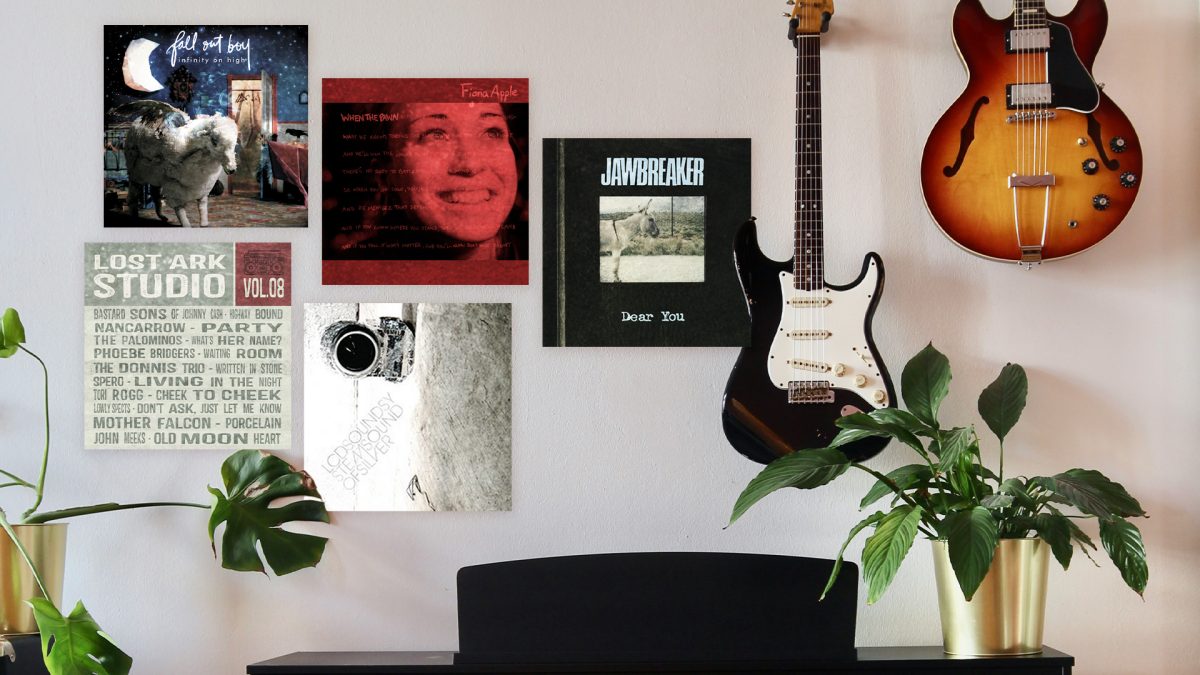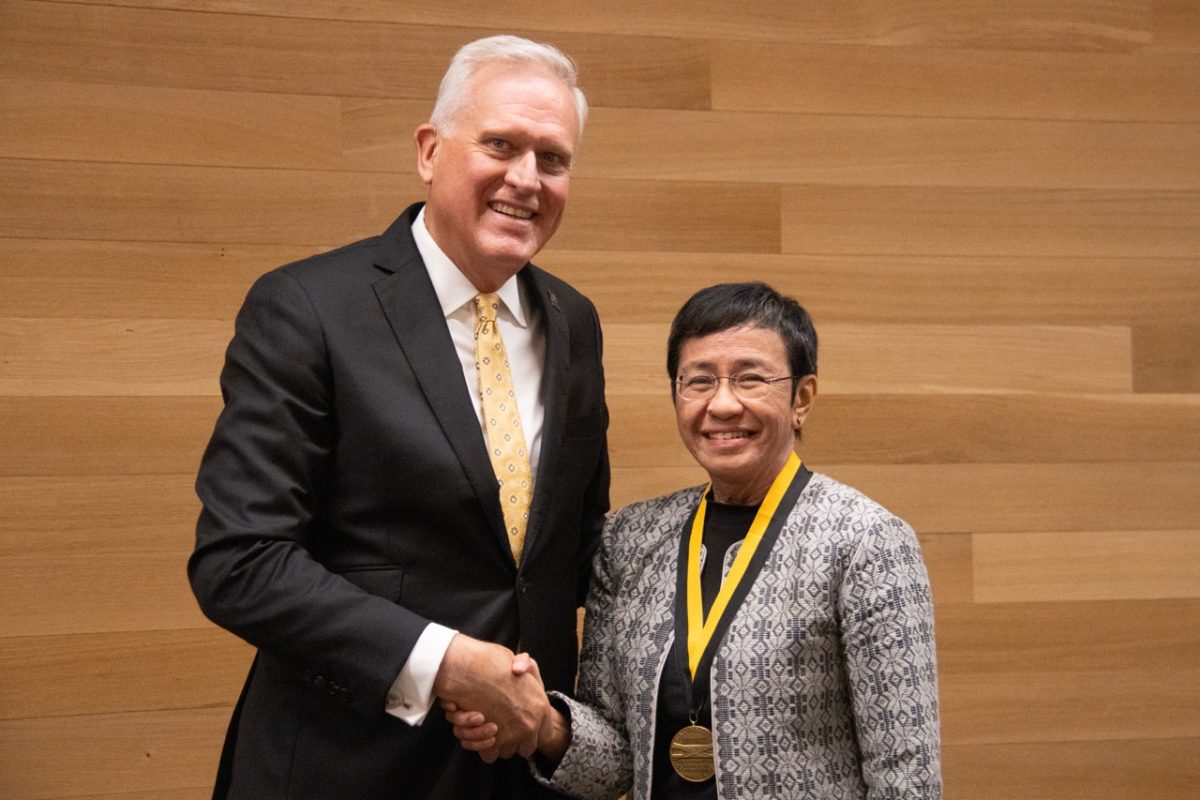MU graduate student Karen Zeferino successfully completed her recital requirement with a “Sounds of Brazil” program that highlights key stylistic elements of Brazilian music.
Listeners were transported from Pernambuco to the sertão to the Xingú river area during the Columbia Chamber Choir’s “Sounds of Brazil” concert on Jan. 29. The ensemble was conducted by MU graduate student Karen Zeferino in fulfillment of a recital requirement for her Master of Music in choral conducting.
Choral Arts Alliance of Missouri director Emily Edgington Andrews initially proposed the idea to Zeferino by. Originally from Brazil, Zeferino agreed to take this on as her conducting recital.
Initially, she was slightly hesitant about the recital theme, not wanting to portray Brazil as a monolith. Each region and state has its own musical traditions, so Zeferino strived to curate a program that represented different stylistic elements of Brazilian music. Although not a comprehensive list, Zeferino’s program of eight songs gave audiences a sample of what the music of Brazil has to offer.
Some unique aspects of Brazilian music include syncopated rhythms, intricate harmonies and a variety of different modes — or melodic scales — that are uncommon in Western music. Members of the choir had to master these concepts, while also learning how to sing in Portuguese. During the rehearsal process, Zeferino used many different methods to help the choir understand these nuances. One method was encouraging the singers to move their bodies and dance with the music while practicing in order to make the challenging rhythms feel less restrictive.
“I was trying to make them feel it in their bodies because we sing with everything in our whole body,” Zeferino said.
Much of Brazilian music is based on folkloric celebrations and dances. One of the compositions in the program, “Asa Branca” by Luiz Gonzaga, exemplifies this principle. Influenced by Baião, a type of folk music from northeastern Brazil, “Asa Branca” tells the story of drought and suffering in this region of Brazil, while also promoting a theme of hope. While this was one of the most difficult pieces to conduct due to the several moving parts, Zeferino said it was her favorite.
“That was when I really got emotional. I was really feeling the moment, and being able to share the music and see the singers… it really made me feel like I was back in Brazil,” Zeferino said.
While Brazilian music has its own distinct characteristics, it still shares many similarities with other styles of music around the world. Many prolific Brazilian composers were contemporaries of famous European composers, such as Mozart and Haydn. Furthermore, due to colonization, European music took an early presence in Brazil. Zeferino’s expertise in European and Brazilian styles of music has helped her better develop her musicianship. However, she believes it is equally important for non-musicians to expand their horizons and listen to music they may have never been exposed to before.
“It makes us see how different, but also how similar, we are as human beings,” Zeferino said. “We’re all just trying to express ourselves and send a message for people through music.”
Edited by Scout Hudson | [email protected]
Copy Edited by Shirin Xavier and Mary Philip



















